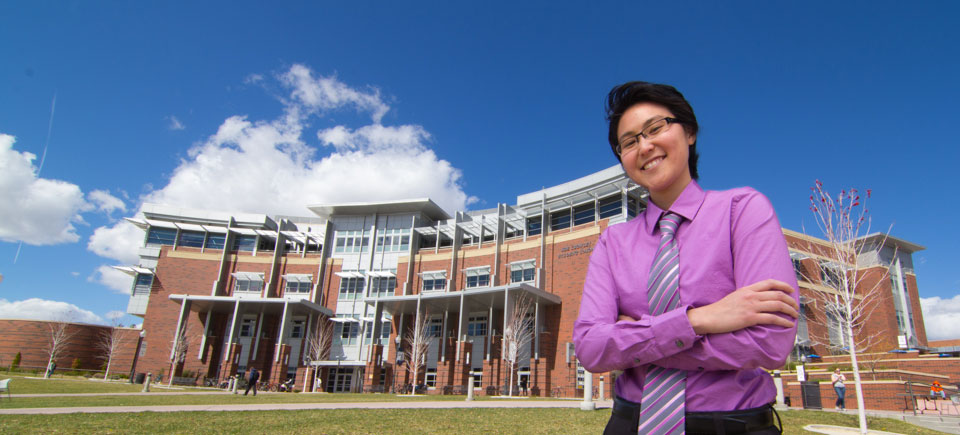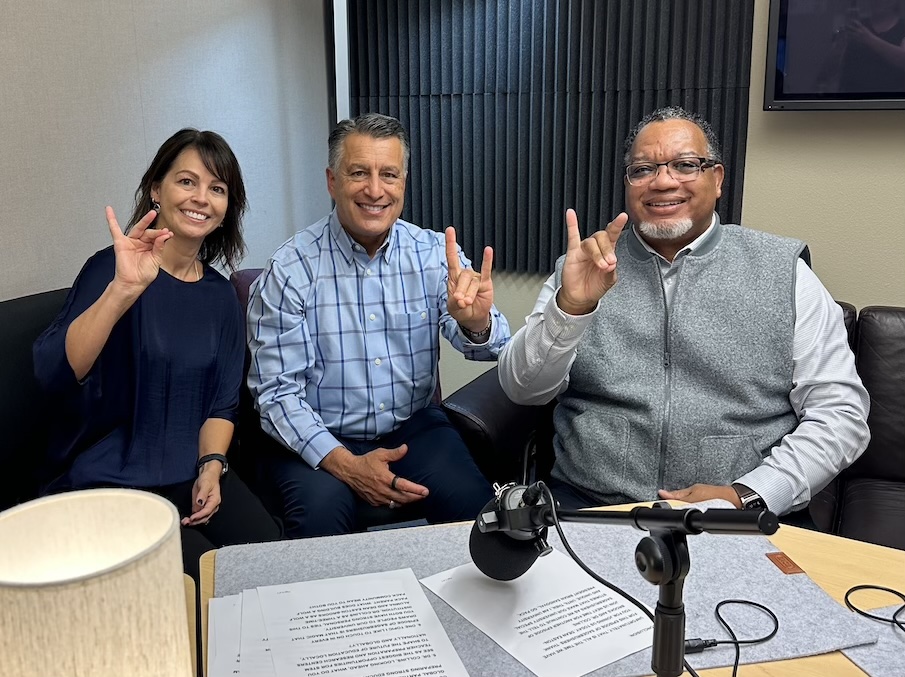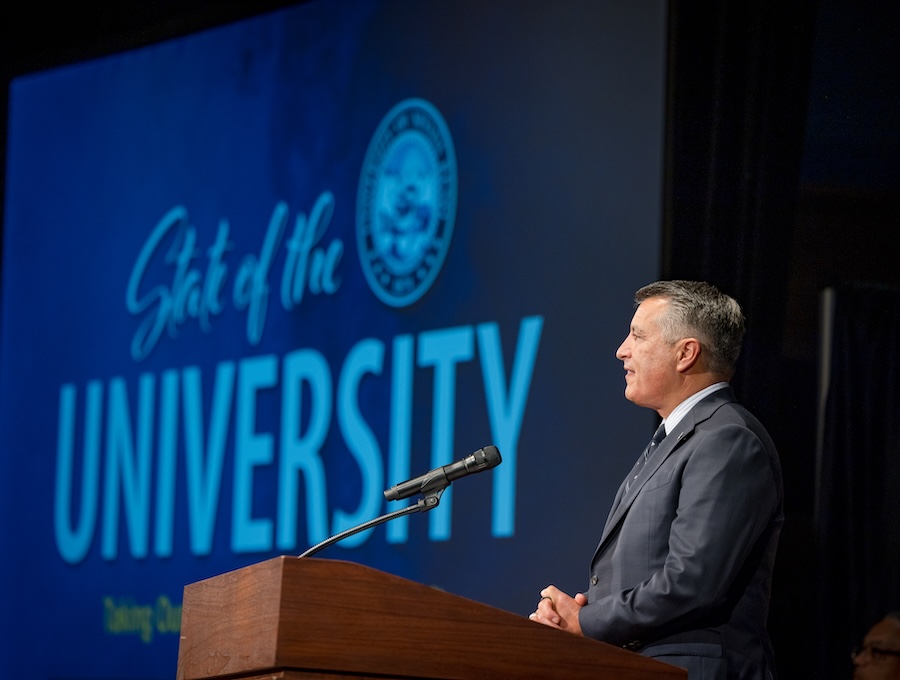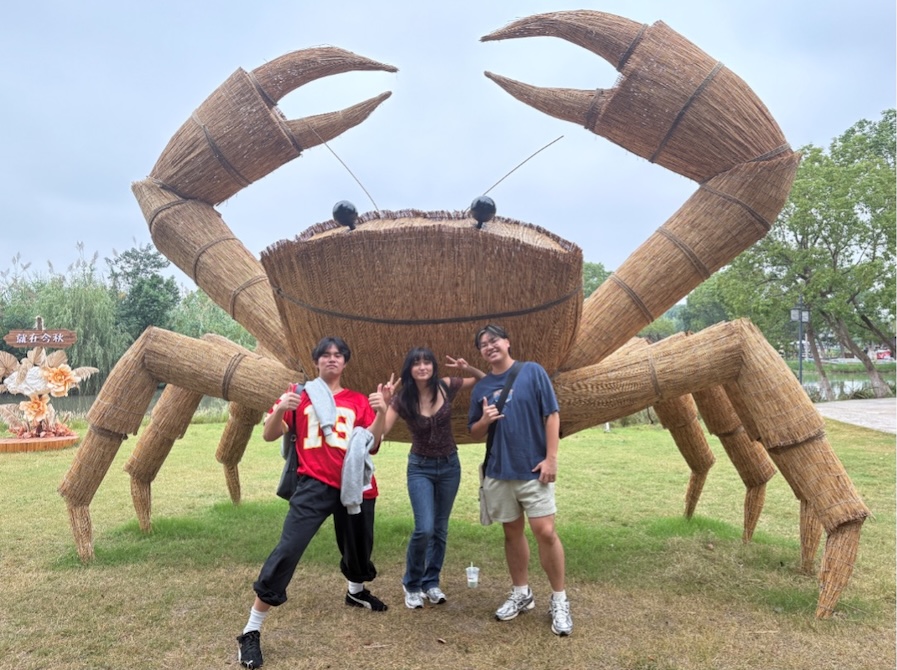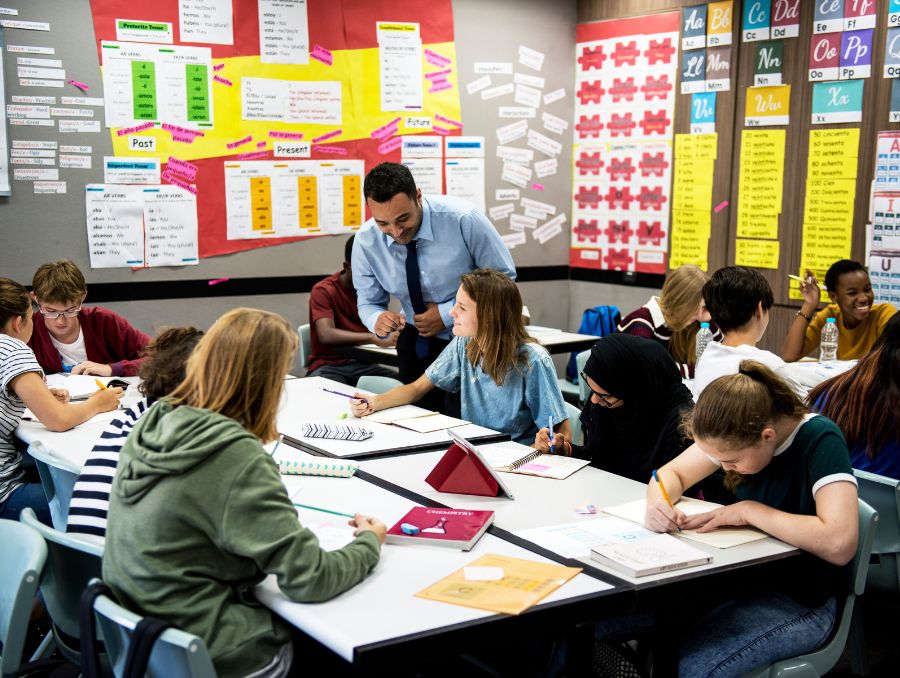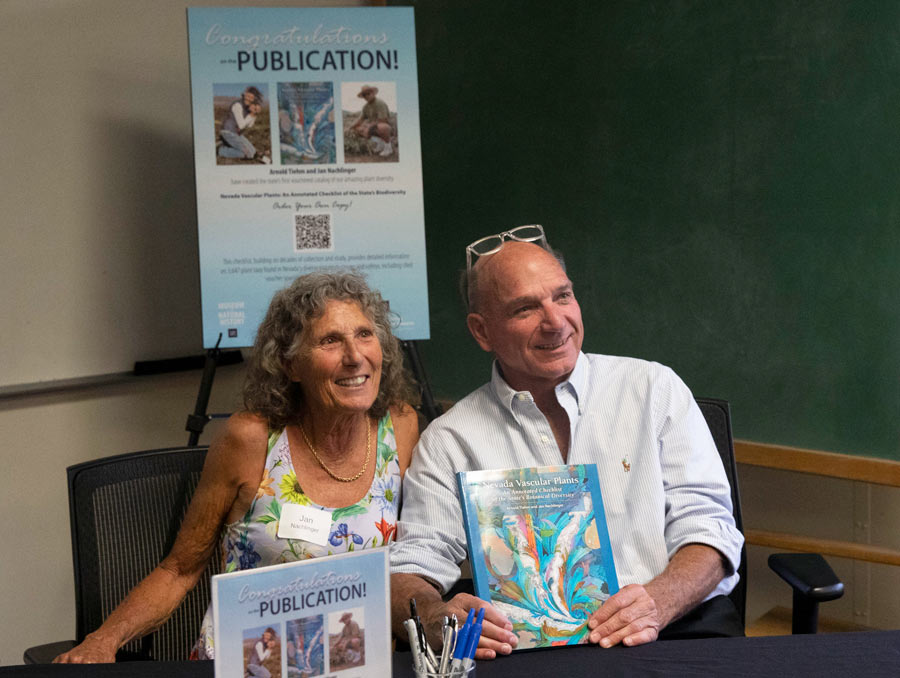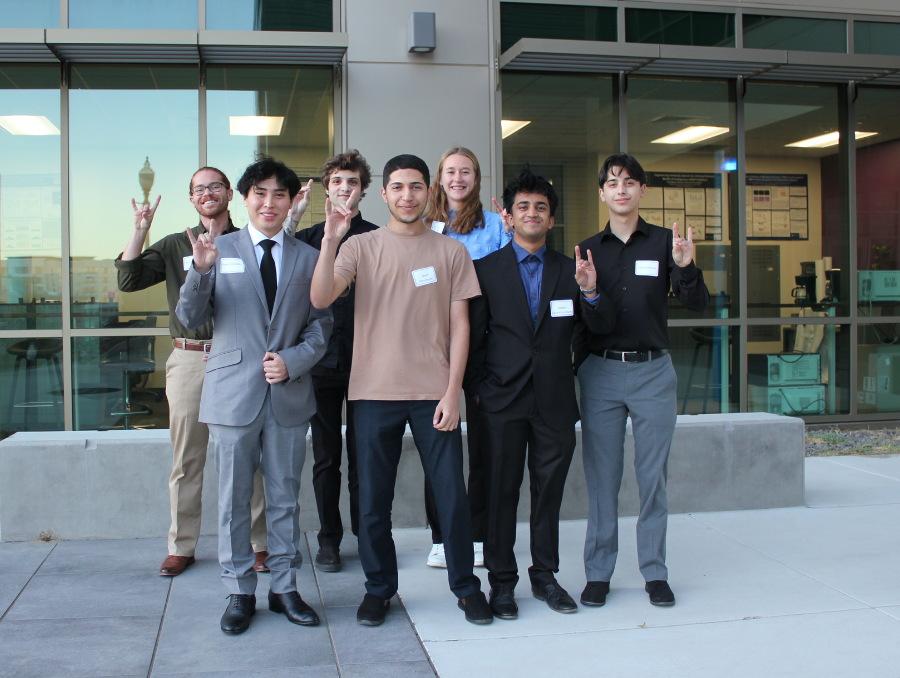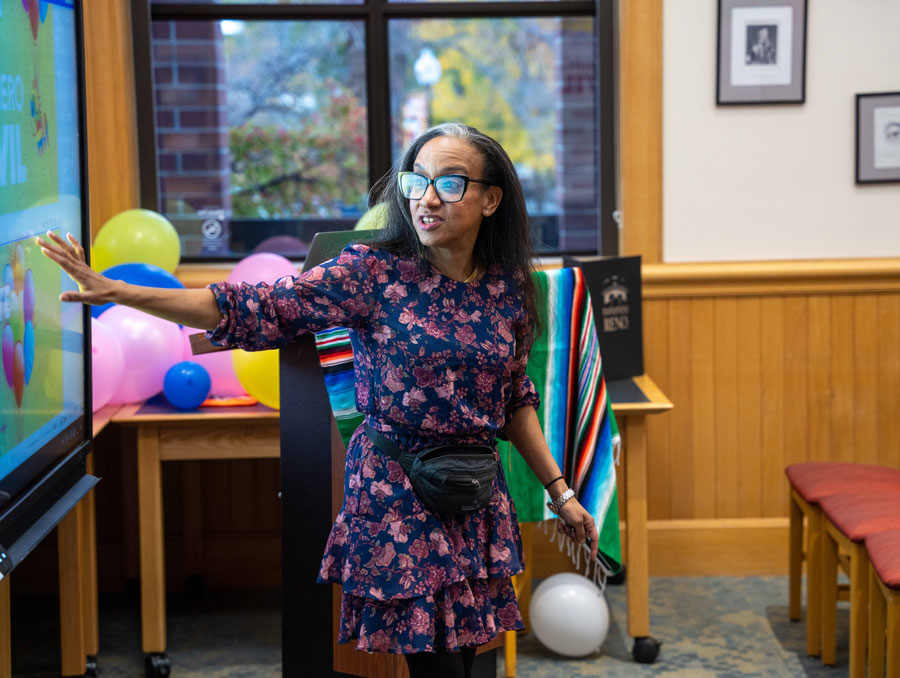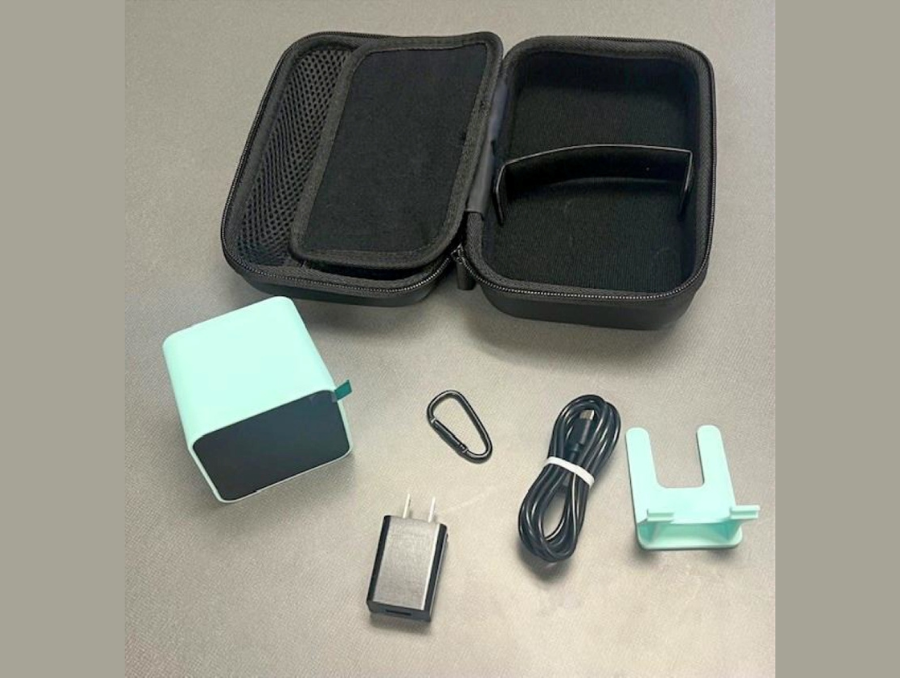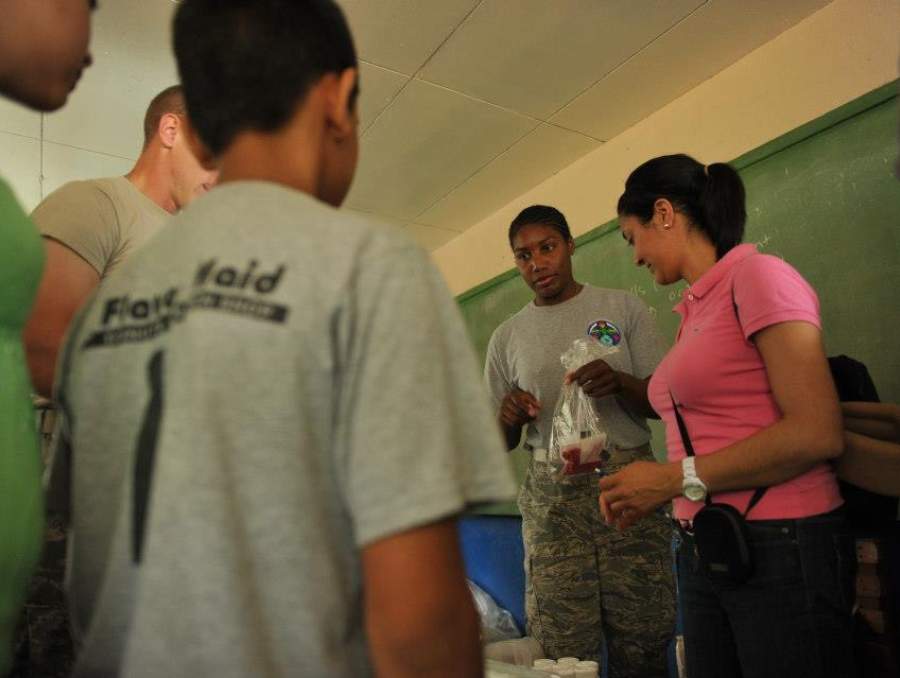Chelsea Lee cares deeply about many human rights issues, most particularly regarding the issue of same sex marriage.
"The issue is a big part of who I am," said Lee, a 22-year-old from Sacramento who is majoring in political science. When Lee graduated from high school, she joined the U.S. Army, and saw firsthand the mixed messages the military's "Don't Ask, Don't Tell" policy sent to selfless and patriotic young men and women regarding their choice of sexual orientation. "It's such a personal issue to me."
So personal, in fact, it helped Lee develop and write an award-winning research paper on same sex couple rights. In late February, Lee learned that her research paper, which studied and evaluated same sex marriage laws and legislation in more than 180 countries (including the United States), was chosen by the Council on Undergraduate Research to be presented to members of Congress on April 24 in Washington, D.C.
The "Posters on the Hill" presentation is one of the most rigorously vetted and competitive undergraduate research competitions in the country. More than 800 applications were received. Only 60 posters were selected to be presented. Lee will be traveling to the nation's capital this week to present her findings in person.
The paper's genesis can be traced to last summer, when Lee took an American Public Policy class from Derek Kauneckis, an associate professor in the Department of Political Science. Kauneckis encouraged Lee to look a little deeper into the issues of same sex couple and gay rights.
"I really wanted to first see how the United States fares in terms of same sex couple rights and gay rights, and I also thought, 'Well, how about across the globe?'" Lee said. "You don't hear a lot about the international community just because we are so focused on this issue in the United States."
The first thing Lee needed to do, and did do, Kauneckis said, was put her strong personal beliefs to the side as she canvassed the world.
"Same sex couple rights is an enormously divisive topic," Kauneckis said. "Chelsea initially was interested in the topic from her own observations about the rights being denied to same sex couples in the military. This personal interest does drive the passion needed for good research, but it usually clouds good analysis.
"From the start of the project I let her know that I was only interested in working with a student who would focus on the science of political science - someone who would be willing to use the methods of scientific inquiry to study the topic. Since it was always her curiosity that was driving her interest in the topic, it wasn't difficult to get her to think like a researcher than an advocate."
Lee said she really stretched and broadened her abilities. She enrolled in two graduate-level statistics courses to help improve her skills in finding, calculating and producing clean and meaningful data. Like all productive research topics, she found the scope of her project constantly growing, becoming more robust with each new wrinkle she added.
Given Lee's own personal story, it's not surprising her research was more inclusive than exclusive, and that it eventually took on a worldwide focus. Lee is a first-generation born Chinese American. Her parents immigrated to the United States in the 1980s after her father sought relief from the economic repression in Myanmar that began in the 1960s with the establishment of the country's socialist regime.
"I originally thought, 'Let's take a look at the set of rights that other countries afford their citizens," Lee said. She smiled and shook her head about how quickly a narrowly conceived project had blossomed, and how she was investigating same sex couple rights in countries as diverse as the United States, Argentina and South Africa. "And then it turned into this huge project, because when I dug into it, I just discovered that no one had ever done this before, this cross-national level looking at all the countries and how they rank relative to a country like the United States."
Kauneckis said he was impressed by Lee's determined work ethic, her endless reserve of intellectual curiosity, and her ability, at every turn, whether it was into a momentary research cul-de-sac or whether her approach instantly connected all the key points of her research puzzle, to "show the spirit of a real researcher."
"Chelsea is able to independently identify a puzzle in the real world, wrestle with how to challenge her assumptions, form hypotheses, and tackle getting the skills necessary to empirically test those hypotheses," Kauneckis said. "We repeatedly challenged her to do real research, and in each case she lived up to that challenge.
"Whether it was to 'go out there and get a dataset' or spend long hours coding and entering data, or figure out how to independently 'develop the skills you don't have to do this project,' in every case, she has really surprised us with the results."
Some of her findings were surprising, Lee said. The rights of same sex couples in the United States compare fairly favorably to the rest of the world, Lee said. However, she added, the U.S. clearly lags behind nations such as South Africa - where same sex couple rights have been enacted at both the federal and state levels and where same sex marriage is legal.
"(South Africa) is very comfortable with this issue," she said.
Taking a step back from her research and speaking on a personal level, Lee said she was disappointed that a "worldwide leader" such as the United States would trail certain countries on such an important issue.
"When you do what I did, and you compare the United States with 185 other countries, and you see how much progression other countries have made, relative to the United States, it's a little frustrating to see that this issue is still so controversial," she said.
Still, she said, the project, though sometimes difficult, was well worth the time and effort. When she presents her findings to members of Congress this week, she said she's hopeful the academic rigor and research bent that she brought to her work will be apparent.
"I've learned so much about research," she said. "It's hard to maintain objectivity sometimes. You have preconceptions, always, in research, in any area. I would hope that at the end of the research, as it's still progressing, that I deliver it in a way that is unbiased. You can only limit, filter, the amount of bias, because we're human beings, and there will always be bias. But I think the research always reflects a fair amount of statistical analysis, and it's your job to present the findings in a very neutral way."
Kauneckis said he was optimistic Lee's presentation would be well-received. He pointed to Lee's warm, empathetic personality as another of the young woman's strongest selling points.
"Chelsea's project is actually not in my area of research," said Kauneckis, whose own research is in the public policy realm, though not focused on the area of human rights. "However, every time she came back with results, the topic became more and more interesting, and it was impossible to turn her down.
"I think that is probably one of the other attributes that make her so special to work with, that she is able to effortlessly pull you into her research."
For her part, Lee said Kauneckis' guidance and encouragement were keys to her project earning national recognition.
"My experience with Professor Kauneckis has been absolutely amazing," she said of Kauneckis, who in 2012 was named the University's Outstanding Undergraduate Research Faculty Mentor. "He's one of the most celebrated professors we have, not only in the political science department here, but within the university.
"Having him as my mentor has been so helpful to me. He is the reason why I even applied to the D.C. conference in the first place. He's been so patient, and he's also been great at pushing me, to go beyond my own comforts and my own standards of what I think is great. I'm eternally grateful to him."
Lee, who is on track to graduate in May 2014, already has a list of graduate schools she would like to attend. She hopes one day to find a career involved with international human rights, for an organization such as the United Nations or Amnesty International.
Upon graduation, like so many University graduates, she does plan to take a little time off from her studies. But unlike some of her cohorts, who might backpack Europe or South America, her plan is to find an internship working on the policy side of the California state government in Sacramento.
Kauneckis, jokingly, when asked about Lee's future, wondered when the next seat would be available on the U.S. Supreme Court.
More seriously, the political science professor who encouraged a young, passionate student to direct her strong feelings for equality in the world to the field of research, said this week's trip to Washington, D.C., is just the beginning of what promises to be a bright future.
"Chelsea has skills and attributes that go well beyond just being a good researcher," he said. "She is affable and disarming, driven but not overly ambitious, focused yet with broad interests.
"My guess is that this will only be the first of many trips to Washington, D.C., for her."
